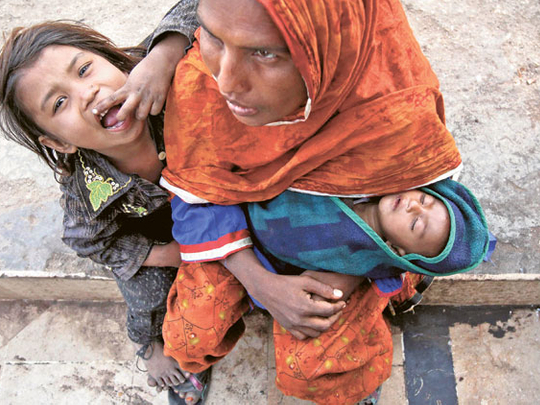
Islamabad/Karachi: Bashiran Bibi and her husband fought every day because money was tight. Their hungry children's screams tormented her. She began begging in Pakistan's streets. But that didn't help.
So the maid, 25, decided there was only one way to deal with crushing poverty. She jumped in front of a speeding train with her two sons and daughter, all under the age of three.
"Bashiran told me the night before that it would be better for everyone if they all died," said her mother-in-law, Barkat.
Pakistanis react to widespread hardship in many ways. Some head abroad looking for jobs. Others are drawn to militant groups seeking to topple the state.
In the ten months to October 2011, about 1,600 people decided suicide was the only option, according to the Human Rights Commission of Pakistan. The previous year 2,399 people killed themselves and poverty was a significant factor, the commission said.
Suicide linked to poverty is not unique to Pakistan. Since the mid-1990s, an estimated 150,000 small farmers have committed suicide in neighbouring India, mostly over debts, according to the Centre for Human Rights and Global Justice at New York University.
Not a priority
But Pakistan has nowhere near the economic power that India does, so tackling social ills could be more difficult. Growing economic pressures could push the suicide figure even higher in the South Asian nation where more than one in five people live below the international poverty line of $1 (Dh3.67) a day.
Critics say alleviating poverty has never been a priority. In the 2011-12 budget, Pakistan's government allocated 0.04 per cent of spending for social protection schemes. By comparison, just over 17.8 per cent went to defence, though some experts put the figure at 26 per cent.
Shahnaz Wazir Ali, special assistant to the prime minister on social affairs, argues Pakistan has made enormous efforts to eradicate poverty including monthly cash grants to poor families headed by women. "The government has led a very targeted and focused approach," she said.
People like Talib Hussain, 45, didn't seem to benefit.
He borrowed money to start a livestock business but it folded. One creditor after another threatened to call the police if he didn't pay up.
When the pressure became unbearable, he walked out of his thatch-roofed mud hut house early one morning, wrapped his turban around his neck and hanged himself from a tree.












